SBIFF Outstanding Directors
Chazelle, DuVernay, Jenkins, Lonergan, Veillenueve Deemed Among Year’s Best
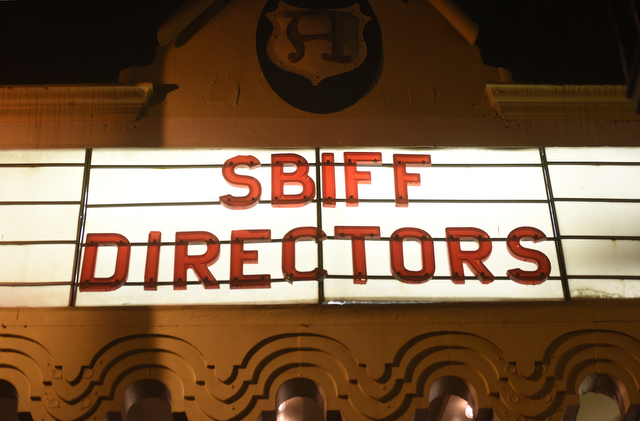
On Tuesday, February 7, at the Arlington Theatre, directors Damien Chazelle (La La Land), Ava DuVernay (13th), Barry Jenkins (Moonlight), Kenneth Lonergan (Manchester by the Sea), and Denis Veillenueve (Arrival) were awarded the 2017 Outstanding Directors of the Year Award. Thoughtfully and engagingly moderated by Deadline Hollywood’s Pete Hammond, the night featured in-depth, one-on-one chats with each director before the five sat on a panel to answer questions as a group.

Chazelle, who spoke first, detailed his unexpectedly successful film’s early beginnings as “a losing proposition” too ambitious for studios to take interest in; 2014’s bold Whiplash, he said, was a “strategic,” “small and constrained” piece released in part to attract the attention of financiers for the project that would become La La Land. Musicals, however, “as a genre were something I resisted,” he said. “I was more into Hitchcock than Stanley Donen.” It was as a film student making documentaries that he was struck by the way musicals used “fantasy to comment on our real world,” and with La La Land, Chazelle wanted to “take the realism even further — to have characters who don’t seem like they’re going to break into song at any moment,” or to shut down the 105 freeway, for example, to shoot a scene on an actual freeway. The film was a way of reviving old art forms and honoring old mediums with vistas of classic locales like the Rialto theater in Pasadena. It was a modernized, “go-for-broke reveling of the medium,” he said, to find “what is still vital in these forms.” “Do not take the form for granted,” he said. “Everything is a choice.”
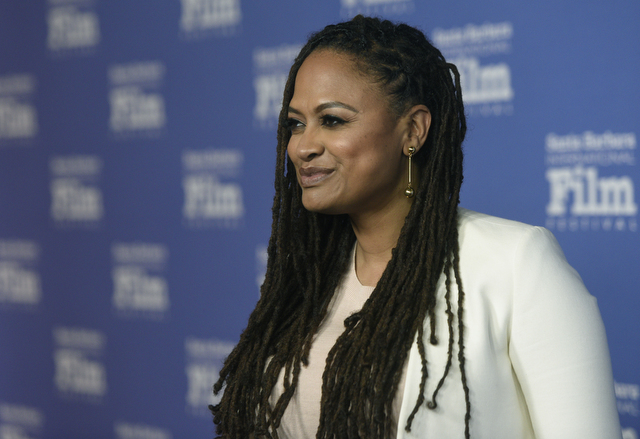
DuVernay spoke next, recounting her days as a UCLA student when she would travel north to S.B. to watch movies. “This was my place,” she said. Hammond commended the former movie publicist for her insightful and revealing documentary, telling her that Steven Spielberg said he would have done Lincoln differently had he seen her movie beforehand — “But leave it to Ava to uncover it,” he had said. DuVernay grew up in Compton “fearing police,” and it was her perspective that allowed her to see injustices in the system that others would ignore. “It’s about how these systems of oppression are endurable. Real change comes from reconstructing — a lot of what we do now is Band-Aids when we need surgery,” she said. She said that she takes hope from looking at her relatives in the Civil Rights era five decades ago and their examples of “black joy and black survival.”
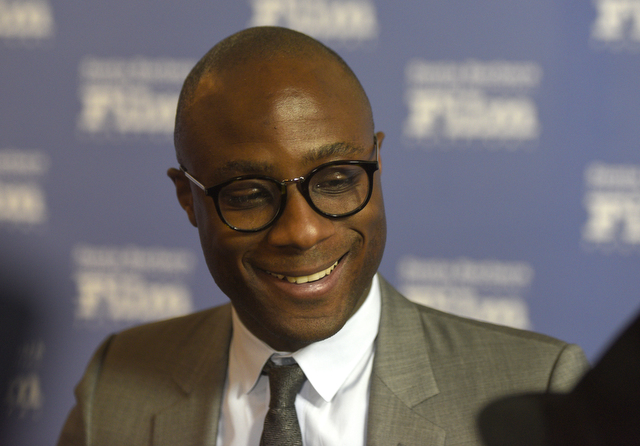
Moonlight’s Jenkins discussed how he shared much in common with the source material of playwright Tarell Alvin McCraney’s original work, as both grew up with mothers who struggled with addiction. “I try not to let my personal life get in the way of my craft,” he said, “but the craft had to blend with my personal life this time.” Jenkins honed his deeply emotional work to bring to life the intensity of feelings of “the disorientation any family member feels watching another slip away,” in the case of Chiron’s crack cocaine-addicted mother Paula (Naomie Harris) and “immersive,” dizzying scenes with “sound swirling around the room.” Jenkins praised African-American film pioneers who came before him, such as Spike Lee, saying that they helped the “tools to filter down” so that “a kid who grew up in the projects like Chrion can grow up, use these tools, and be nominated for an Academy Award.”
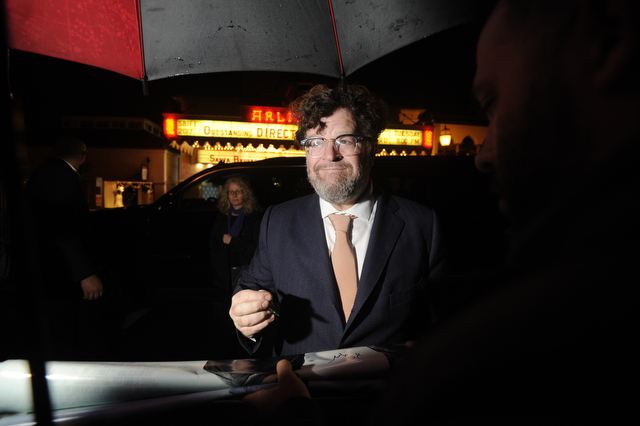
Manchester by the Sea was originally meant to be a Matt Damon film, said director Lonergan, who eventually took on the script as his own. Lonergan discussed the deep sense of place felt in the filming location of Manchester-By-The-Sea on Cape Anne, with townspeople like the Manchester chief of police playing cameo roles. Poignantly, a boat used in the film, the Claudia Marie, was named after its owners’ deceased daughter, who did not tell Lonergan of the meaning of the boat’s name until after filming. The movie was about “tragedy,” but also about “how persistently and deeply people are devoted to each other when facing tragedy.” “All over the world,” he said, “people are performing acts of everyday heroism, in hospitals and battlefields.” He consciously chose not to make the movie overwhelmingly sad, leaving out a funeral scene because it would have been “abusive — you don’t need us to hit you over the head with how hard life can be.”
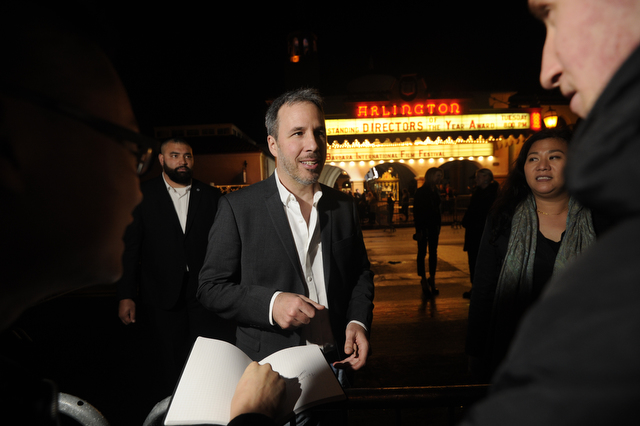
Veillenueve was the last director to speak. He first talked about Spielberg’s Close Encounters of the Third Kind, a very inspirational film for the Québécois filmmaker, who came to learn out about French New Wave via the ’70s sci-fi film. Sci-fi, he said, “was my initial dream, then I took a curve.” Amy Adams was a perfect fit for the role, he said, and she loved the script, agreeing to join within 48 hours of reading it. Much of the movie, he said, was told through the “intimacy” of seeing the world through eyes of “a woman’s journey apprehending death, knowing her future, and the power of communication.” He did note the timely power of a movie about communicating with a “foreigner on the other side of a wall.”
Before receiving awards from director Paul Brickman, the five directors talked about what inspired them to become directors, and then addressed the future of movies and movie distribution. DuVernay credited companies such as Netflix, which released her film, for “collapsing traditional boundaries and barriers.” “We are in the midst of a resurgence,” said Lonergan, comparing it to the 1970s era of prominent independent filmmaking. All onstage, though, confessed their love for the big screen over computer screens, with Veillenueve saying, “I hope the big screen will survive the revolution.”



